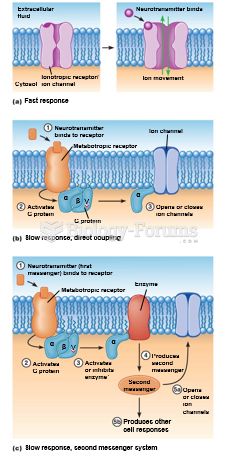|
|
|
People with high total cholesterol have about two times the risk for heart disease as people with ideal levels.
This year, an estimated 1.4 million Americans will have a new or recurrent heart attack.
A serious new warning has been established for pregnant women against taking ACE inhibitors during pregnancy. In the study, the risk of major birth defects in children whose mothers took ACE inhibitors during the first trimester was nearly three times higher than in children whose mothers didn't take ACE inhibitors. Physicians can prescribe alternative medications for pregnant women who have symptoms of high blood pressure.
There are immediate benefits of chiropractic adjustments that are visible via magnetic resonance imaging (MRI). It shows that spinal manipulation therapy is effective in decreasing pain and increasing the gaps between the vertebrae, reducing pressure that leads to pain.
A recent study has found that following a diet rich in berries may slow down the aging process of the brain. This diet apparently helps to keep dopamine levels much higher than are seen in normal individuals who do not eat berries as a regular part of their diet as they enter their later years.
 The three stages of cell signalling: receptor activation, signal transduction, and a cellular respon
The three stages of cell signalling: receptor activation, signal transduction, and a cellular respon
 The varying voltage signal from the pickup coil triggers the ignition module. The ignition module ...
The varying voltage signal from the pickup coil triggers the ignition module. The ignition module ...





